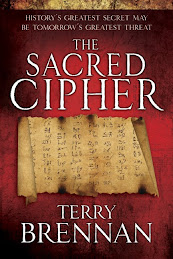The annual American Christian Fiction Writers (ACFW) Conference will occur in a few weeks in Minneapolis. While I've been to several other writer's conferences over the past three years, this will be my first visit to this venerable, national gathering of the best and brightest in Christian fiction.
As a "rookie" to ACFW I was included in a 'first-timer orientation' email loop. The loop has been a mixed blessing.
It's one thing to get 30 or more extra emails each day. It's another thing when most of those emails are concerned with what women should wear to the Saturday night dinner. Or are an on-going discussion about whether coffee will be available or how much chocolate is too much.
Okay, it's a guy thing ... I don't care about prom gowns and I'm not concerned about OD'ing on caffine or a chocolate binge. So, those emails I've learned to delete.
What has been interesting, for me at least, is the often agonizing dialogue about how to throw your "pitch".
For the uninitiated, a "pitch" is what a writer will share with an editor, publisher's rep or an agent when they are trying to sell either a manuscript or work-in-progress, or trying to sell themselves. The "pitch" is generally about seven sentences and can be delivered in about three minutes. In sales, it's often called your elevator speech.
Sadly for the rookies, the writing business has a lot of unwritten traditions and expectations that people are expected to know and follow ... and which cause a great deal of anxiety for those going into a big-time conference for the first time.
What is a one-pager? What should be in a one-pager? What does it look like? What is a summary? What is a synopsis? How do they differ? What should I bring with me? What do I pitch ... the one-pager; the synopsis; the summary? When do I pitch? How do I throw the pitch - fast ball ... curve ball ... slider?
And on and on it goes.
I've been empathizing with every one of them who is agonizing about bringing the "right" thing to the "right" person at the "right" time. Should I bring a business card, a one-sheet, a two-sided one-sheet, a proposal (what should be in a proposal?), a manuscript (finished? unfinished?), a tuxedo?
So I wrote this in one of the email loop responses:
I remember the second writer's conference I went to. I had appointments the next day with an agent and a top publisher. One of my author/mentors told me these two appointments were critical and to give each of them the synopsis and first few chapters, "perfect - squeaky clean." I was up until 4:00 a.m. working on my laptop and then I was standing outside the door of the local Staples, grumpy and bleary-eyed, when it opened at 7:00 a.m. to get hard copies off a CD.
The folks at the appointments never asked to see it.
It's so hard, coming into this strange world for the first time, because everybody inside the world (even through they ARE great people) seems to know the secret code and all of us on the outside are trying to figure out the secret code and we don't even know the language.
Here's the bottom line. All you need is passion, and a great idea. Leave the rest at home (not really, but I hope you know what I mean).
Whether you have a glitzy, drop-dead designed one-page, a synopsis, a pitch or five squeaky-clean chapters is not as important as having passion and a great idea. The rest of it you can learn by going to the seminars at the conference and reading books on the craft (Sol Stein; Donald Maass; Stephen King On Writing).
But ya ain't goin' nowhere without passion and a great idea. If you can share passion and a great idea - coherently - with an author, editor, agent or publisher, you don't need anything else. Honest.
Two years ago I came to my first conference amazingly ignorant. I didn't know anything or anybody. My first paid critique was a disaster, and so was my finished manuscript. But I had another idea I was passionate about. So I wrote that book over the next year and got an agent. Last month I signed a contract with Kregel and the book will be coming out sometime next year.
Last week I went to my third Philly Conference and took along my 26-year-old daughter. We've got an idea we're collaborating on. All we had was a storyline we had verbally brainstormed. Nothing on paper.
She was in a first-evening Practice your Pitch seminar, just to observe and learn. But they broke up into small groups and each person in the group was to give their pitch to the rest of the group. So while the others were pitching, Meghan was scribbling away in her notebook. When it came her turn, she shared her seven sentences and everybody loved it. She pitched to three other mega-authors. Two of them spent more than an hour each in separate brainstorming sessions, helping Meghan flesh out the plot. One of them told her, "You finish that book by next year and make sure you bring it to me. I want to endorse it."
She had no business card, no pitch, no one-sheet, no proposal, no synopsis, no manuscript. No tuxedo.
But she had an idea we had hatched - and it's a really good idea - one she was passionate about. That's a pitch that others can catch.
If you believe in what you're doing, share that. All the rest works itself out.
So, that's the lesson for today. I don't have an answer for the chocolate and the coffee. Forget about the prom dresses.
Wednesday, August 27, 2008
Subscribe to:
Post Comments (Atom)


No comments:
Post a Comment